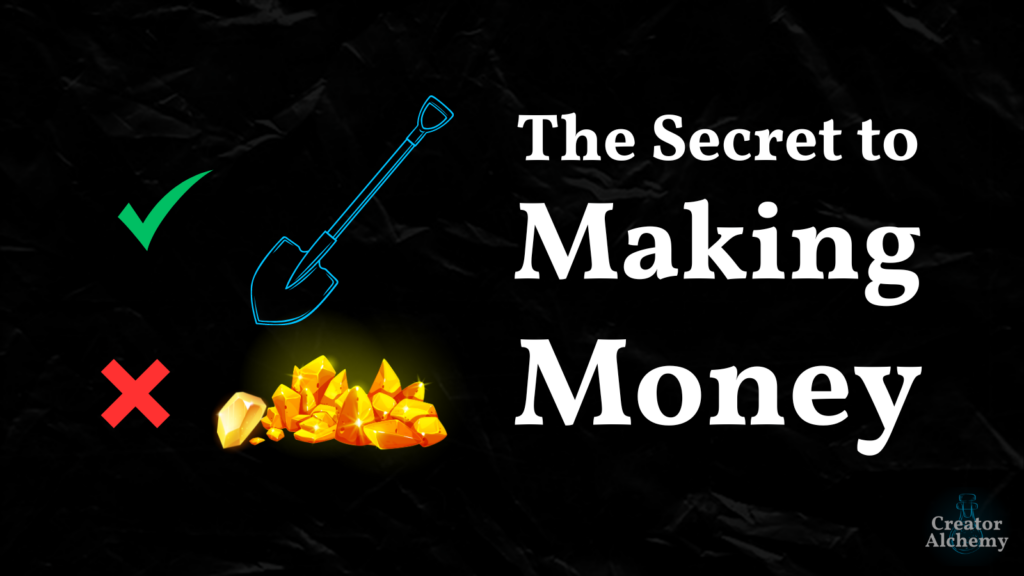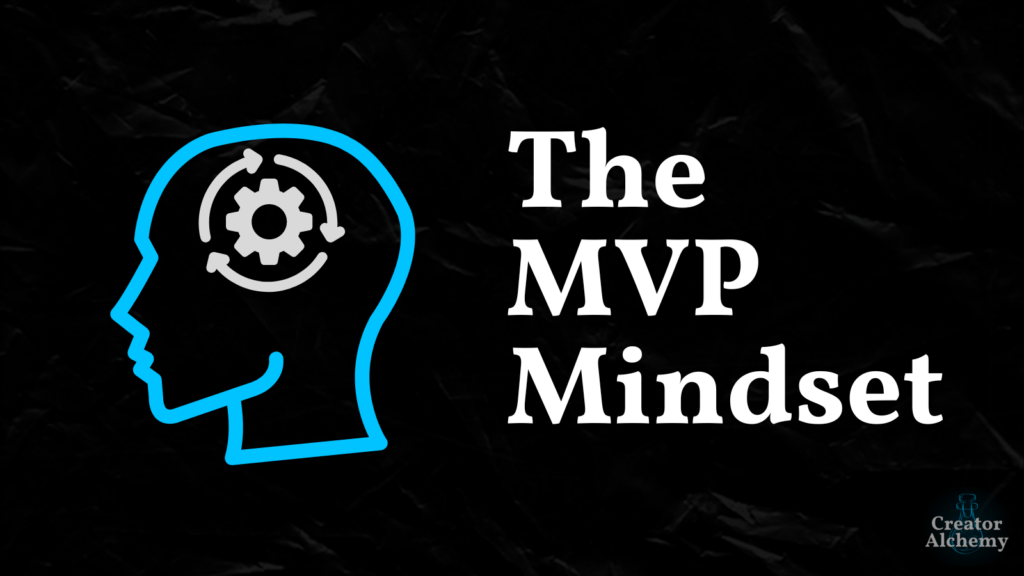“The master has failed more times than the beginner has even tried.”
—Stephen McCranie
The first article I submitted to a website never saw the light of day. It didn’t even get a response, and I don’t blame them. It was atrocious — the kind of article you take out back, shoot, light on fire, then bury in a shallow grave.
Their silent rejection was a wake-up call that pushed me to examine my shortcomings as a fledgling writer and dive into improving my abilities. On my journey, I’ve found three concepts that have fundamentally changed how I approach writing and are crucial for any beginner writer to keep in mind as they blaze their own trail.
•••
Embrace Sucking
“The first draft of anything is shit.“
—Ernest Hemingway
You’re supposed to suck at first; otherwise, you wouldn’t be a beginner. Comparing yourself to people who have decades-worth of practice on you is a surefire way to feel inadequate. Even the illustrious Stephen King received so many rejections for his early writings, the “nail on [his] wall would no longer support the weight of the rejection slips impaled upon it.” So what did King do? He “ replaced the nail with a spike and kept on writing.” We all know how his career turned out.
You today are the least skilled you’ll ever be. Every day that passes is an opportunity to get a little better. This isn’t a “You can do it!” speech; it’s more of a “You suck today! But you will suck less tomorrow!” pep talk.
Pull out something you wrote in high school and read through it. Do you still write like that, or have you improved? My writing has improved dramatically throughout my high school and college careers. Still, it feels like I’m starting all over again as I begin to write on public platforms, using my training in clinical psychology to write about mental health issues.
We all have to start at the bottom before we can reach the top. Sucking at something is the toll we pay on the road to greatness. But improvement is active; it doesn’t happen on its own. We have to do the work.
•••
Put In the Reps
“At the heart of it, mastery is practice. Mastery is staying on the path.”
—George Leonard
There’s a saying in Brazilian Jiu Jitsu: “It never gets easier. You just get better.” This holds true for any skill: playing guitar, singing, basketball, parenting, snipe hunting, investing, running, and yes, writing. But how do we get better?
Stephen King, in his book On Writing, famously gives the example of how you can write 180,000 pages in three months by breaking it down to writing 2,000 words each day. But’s let’s set the bar even lower. If you write 200 words a day five days a week, that equals a 1,000-word article. That means you can effectively write 50 pieces in a year. Imagine how much better your 50th article will be compared to your first, second, or even 20th.
Or you can be an overachiever and write 500 words each day, four days a week, which equals two 1,000-word articles each week. So in a year, you’ll have 100 published pieces. How much will you have learned and improved over the course of writing 100 articles?
Even as you’re putting in the reps, you’re going to stumble. You’re going to have days where it all seems like a lost cause. Imposter syndrome will kick in, and all the self-doubt that comes with it. Even some of the biggest names in writing have these days:
“And when you’ve an idea — which is, after all, merely something to hold on to as you begin — what then?
Well, then you write. You put one word after another until it’s finished — whatever it is. Sometimes it won’t work, or not in the way you first imagined. Sometimes it doesn’t work at all. Sometimes you throw it out and start again.“
—Neil Gaiman
But that doesn’t mean they quit, and it doesn’t mean you should either. It’s part of the process. Being able to look back at a piece of writing and say I persevered through it. I didn’t let it break me. I’m here, on the other side of success, because I faced it and kept going — through the fire, tears, frustration, doubt, and everything else that tried to stand in my way. That’s empowerment.
But what if you start to feel overwhelmed by a large project, don’t know how to start your next piece, or don’t know where to go next on your writing journey? The most effective method I’ve found is to break things down into smaller components. How do you finish a marathon? One step at a time.
•••
Take Baby Steps
“Baby steps count, as long as you are going forward. You add them all up, and one day you look back and you’ll be surprised at where you might get to.”
—Chris Gardner
Kaizen is a concept from the business and manufacturing sector designed to improve efficiency and quality with minimal effort, but it’s gained popularity in self-improvement literature. Dr. Robert Maurer, in his book One Small Step Can Change Your Life: The Kaizen Way, defines Kaizen as “using very small steps to improve a habit, a process, or product.”
Here’s how Kaizen can improve your writing:
Iterate
The more you do something, the better you get — assuming you’re making adjustments based on feedback. See what works and what doesn’t. If an article did well, find out what differentiated it from one that did poorly. Then apply that knowledge to your next one and see if it makes a difference.
Learn about the ancillary aspects of writing
Study SEO and marketing, network with other professionals, or read biographies to find good stories to use as examples in your writing (Ryan Holiday and Robert Greene use this technique effectively in their books). Doing this creates a more efficient system to improve your writing, get people’s attention, and keep it.
Small changes compound and pay big dividends
Eating an extra 500 calories doesn’t seem like much, but doing it every day for a year translates to gaining 50lbs. Writing works the same way. If you can’t write a lot, write a little every day. Read something every day that expands your skills, knowledge, or helps you think about the world a little differently. Try to get 1% better each day and see how much better you’ll be in a week, a month, and a year.
•••
Conclusion and Recommendations
“The journey of a thousand miles begins with a single step.”
—Lao Tzu, Tao Te Ching
It’s ok if you suck right now. You can’t become a master without first being a novice — and novices continuously make mistakes. Athletes go through it, business owners go through it, martial artists go through it, musicians go through it, everyone has to suck before they can get better. If you’re perfect, you can’t improve, and no one’s perfect.
Today you know something you didn’t know yesterday. Tomorrow you’ll learn something you haven’t today. Every single day we make progress in some area of our lives, but we choose what those areas are. Are you going to make progress on the latest trash tv show, or are you going to make progress on your manuscript?
Your tenth article will be better than your first. Your 100th article will be better than your 50th. Your first presentation will be the worst one you ever give. Look at some of the early speeches of people like Brene Brown. Are they good? Yes. Are they anywhere near as good as her later talks? Absolutely not. That’s the point. Don’t be in a hurry to reach perfection; just focus on improving bit by bit each day.
So write something, even if it sucks. Learn from it, apply those lessons to your next piece, and move on. Take it one rep at a time and let small habits compound. Your writing will suck less tomorrow, not because writing will have gotten easier — it never will — but because you will have become a better writer.
•••
If you’re looking for more resources on the craft of writing, here are a few of my favorites (some are affiliate links):
Courses
Articles
- Want To Be The Best Writer On The Planet? Do These 27 Things Immediately
- How I Did Research For 3 New York Times Bestselling Authors (In My Spare Time)
- Read To Lead: How To Digest Books Above Your “Level”
- The 10 Ways I Get Over Writer’s Block
- 33 Unusual Tips to Being a Better Writer
- How to Write a Bestselling Book This Year — The Definitive Resource List and How-To Guide
Books
- On Writing by Stephen King
- Nobody Wants to Read Your Shit by Steven Pressfield
- On Writing Well by William Zinsser
- Writing Tools by Roy Peter Clark
- How to Write Non-Fiction by Joanna Penn



